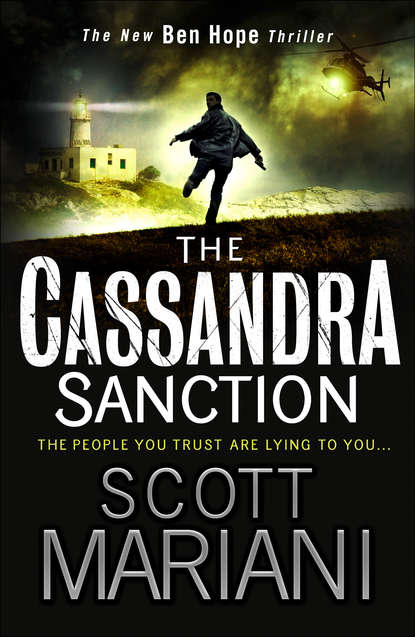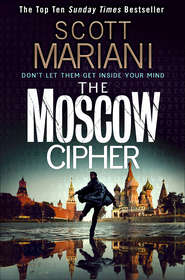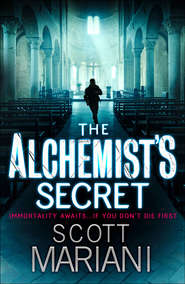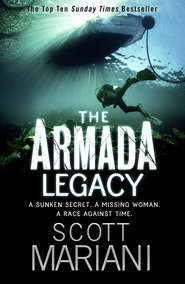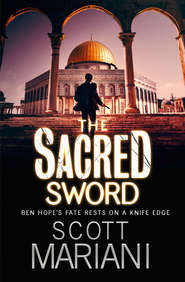По всем вопросам обращайтесь на: info@litportal.ru
(©) 2003-2024.
✖
The Cassandra Sanction: The most controversial action adventure thriller you’ll read this year!
Автор
Год написания книги
2019
Настройки чтения
Размер шрифта
Высота строк
Поля
‘I mean,’ Raul went on, ‘it’s been nearly three months. A body would surely have turned up by now.’
Ben looked at him, surprised. ‘Three months? I thought this must have only just happened.’
Raul sank back deep into the cushions of the sofa, as if suddenly deflated. ‘It was July sixteenth. Eighty-three days ago. A place called Rügen Island. She apparently drove for hours to get there from her home in Munich. She …’ He closed his eyes for a moment, as if it was too painful to say more. ‘The German police closed the case not long afterwards. There was all kinds of bureaucratic bullshit. My parents, they flew out there. Neither of them had ever been on a plane before. Never even left Valdepeñas de Jaén until then.’
‘Did you go with them?’
Raul shook his head sadly. ‘Couldn’t bring myself to go. I felt like a dog about it then and I still do. I just couldn’t deal with it. Had to let them go alone. They were there for five days. My father, he looked like a little old man when they got back, with nothing to show but a wad of police reports. Three more weeks went by, still no body. Can’t have a funeral without a body, right? So they had a service for her at the church in Valdepeñas de Jaén. Now they won’t even speak to me, because I wouldn’t attend it. They think it’s like I don’t care. Like I cut myself away from the whole thing, and from them.’
‘They might have needed your support at a time like that,’ Ben said.
Raul turned the red-rimmed eyes back on Ben. ‘Yes, and that’s something else for me to feel like shit about, isn’t it? But I didn’t want to be there, because to be there would have been like accepting that Catalina was dead. How could I go through the motions of a phony funeral when I was completely certain that my sister was still alive? They’d all given up on her; I hadn’t. As they were all gathering to mourn her, I was searching the internet for someone who could help me. That’s when I found Klein.’
‘You mentioned him before. Who is he?’
‘A former police detective who’s supposedly the best private investigator in Germany. Certainly the most expensive. I hired him to find out what the police couldn’t.’
‘And did he?’
Raul sighed. He dug in his jeans pocket and came out with a rumpled, folded envelope that he handed to Ben. ‘This came two days ago.’
The postmark on the envelope, stamped MÜNCHEN – FREISTAAT – BAYERN, was five days old. Ben took out the letter and unfolded it. The letterhead on the single sheet said LEONHARD KLEIN, DETEKTEI – NACHRICHTEN, with an address in Munich, email contact and web address. The rest of the letter was written in English. It was brief, stilted and to the point, expressing the investigator’s professional opinion that, despite the absence of a body, after extensive researches he had been able to uncover no evidence to disprove the tragic and unavoidable fact that Ms Fuentes was, in fact, deceased as the official reports stated. He was willing to continue working on the case, although he was ethically and professionally bound to instruct his client that such a course of action was inadvisable and that any further investigation was futile at this stage and would only represent a further waste of his time and the client’s money, etc., etc. The letter signed off with a couple of short lines of stiff-sounding condolences.
Ben folded it, replaced it in the envelope and handed it back without a word. He understood now that the letter was what had sharpened the torture of what Raul was going through, and made him want to dive inside a bottle.
‘It’s garbage,’ Raul said. With a sudden flash of anger, he tore the letter apart and hurled the pieces away. ‘So much for the great detective. There goes five thousand euros cash, for nothing.’
‘Should have put it on your credit card,’ Ben said. ‘Pay it off month by month.’
‘I don’t have a credit card. I come from a simple family, where we were taught old-fashioned values. I pay cash for things whenever I can, and if I can’t afford something, then I don’t have it. That five thousand was most of the savings I had.’
Ben didn’t know what to say. He stood, paused for a long time and chose his words carefully.
‘I’m very sorry for what you’re going through, Raul. But I think you’re just going to have to accept that your sister’s dead.’
Raul stared at him. A muscle twitched under his eye.
‘I wish you well,’ Ben said. ‘Try not to get into any more fights. And don’t drink yourself to death.’
He left Raul Fuentes like that and walked back outside into the narrow, sloping backstreet, feeling bad. He shook out a Gauloise and clanged open his Zippo and lit up. Now he could do with a drop or two of the hard stuff himself, but he wasn’t going to. Not right now.
It was early evening, and the warmth of the sun was cooling off quickly. He made his way back through the streets of the old Moorish quarter of Frigiliana until he found the bus station where he’d arrived earlier that day. A queue was forming. He joined it, finished his cigarette and lit up another. A woman in front of him in the queue turned around, sniffing the air, and gave him a look as if he was spraying anthrax spores. He ignored her and carried on smoking.
By the time that one was smoked down to the stub, the bus arrived. The passengers filed on board. Most had tickets. Ben didn’t, and fanned out some banknotes to the driver without saying anything, like some foreigner on holiday who couldn’t speak a word of Spanish. The driver gave him a ticket and change, and Ben wandered up the length of the bus and found an empty window seat towards the rear. He placed his battered old green canvas bag between his feet and leaned back, soaking up the bustle and the snatches of Spanish conversation around him as the bus filled up.
The motion of life. People going places. And he supposed he was one of them.
In truth, he hadn’t even bothered to check the destination of the bus before getting on. His personal compass needle was pointing anywhere but here, and anywhere was good enough for him. You keep moving forwards, you don’t slow down for anything or anyone. You don’t get sidetracked, and that way you stay out of trouble. There’d been enough trouble in this town already to last him a while. The bus was headed somewhere else down the road, and that was good enough for him.
The sticker on the window glass next to him said NO FUMAR, and he didn’t particularly want to antagonise his fellow travellers any more than necessary, so he kept his Gauloises and his Zippo in his pockets. In the olden days he’d have been carrying his well-worn hip flask for company, filled with his favourite single malt scotch, but he’d ditched that a long way back. So with nothing much else to pass the time with, he gazed idly out of the window while waiting for the bus to depart.
And that was when he saw her walking down the street. She was with a group of friends, all around the same age, late teens or early twenties. She was blonde and blue-eyed, wearing jeans and a light denim top, her hair most likely dyed and cropped short, a little spiky, a little punkish, giving her an elfin or pixie kind of look that wasn’t at all typical for a region where most of the girls were of the classic southern raven-haired, dark-eyed variety like the rest of her friends. She stood out, and for Ben she stood out especially. She could almost have been—
The sight of her brought a powerful surge of memories and thoughts into his mind, some of them many years old, some of them very recent. Some of the memories she evoked were the most painful of his life, worse than the terror of war, worse than getting shot, worse than torture and beatings or the hell on earth that was SAS selection training.
He watched her keenly through the glass until she disappeared behind the NO FUMAR sticker and then out of sight altogether, and he felt his compass needle waver, droop and then slew around in a hundred-and-eighty-degree arc.
‘Fuck it,’ he muttered under his breath.
That was when he knew he couldn’t stay on this bus any longer.
He grabbed his bag and strode back down the aisle to the door before the driver pulled away.
‘You just paid for a ticket,’ the driver said.
‘I changed my mind,’ Ben replied in Spanish.
‘You want a refund?’
‘Keep it.’
The driver shrugged. He stabbed a button on his dash and the door slapped open and Ben stepped out into the evening coolness. He hitched his bag over his shoulder and started walking.
‘It’s you,’ Raul Fuentes said when he opened the door and saw Ben standing there on the step. He was clutching a fresh mug of coffee and looking a good bit more sober. ‘Why did you come back?’
‘Like I said, I don’t have anywhere else to be,’ Ben replied. ‘And because of what you told me. I know what it’s like to lose a sister. I’ve known it a long time.’
Chapter Four (#uc42c1ce3-784b-53dd-90e4-629b3810b37d)
Morocco
A long time ago
It is the spring of ’85 and he has never been to such a place before. Through the shimmering heat and the glare and the insane buzz of dusty cars and motorcycles, they enter the Medina of Marrakech, the ancient walled city within a city. A thousand years old, and at its labyrinthine heart lies the souk.
The street market is like nothing the young Ben has ever seen or imagined, with its dazzling arrays of meats and fish and fruits and exotic spices heaped in baskets; hanging displays of tapestries and rugs and ornate clothing and shoes and scarves and carvings and glittering lamps that seem to go on and on forever. The air is filled with the jabber of vendors and customers haggling and bargaining in a language he does not yet understand; he can have no way of knowing that one day he will speak it fluently. The merchants of the souk are the sharpest salesmen on earth, but the intricacies of buying and selling are concepts that the boy has yet to encounter in his overprotected middle-class life. Men who look like characters from the Bible walk the narrow street, yelling, ‘Balak! Balak!’ as a warning to get out of their way as they lead their overladen donkeys through the crowd, the animals’ flanks swaying with everything from garbage to goods for sale in the souk. All around him Ben sees veiled women in kaftans, bearded men wearing long, embroidered robes and skullcaps.
He will never forget the smell of this place. The garden at home smells of fresh-mown grass and apple blossom. This is another planet, rich with the pungent scents alien to a young boy’s nose, intermingled with the heat and dust, the sweat of men and animals.
As well as a new smell that he will soon experience for the very first time in his life. The feral raw-blood smell of fear and desperation and stark despair.
‘Ben! Look!’
It’s the excited voice of Ben’s sister, Ruth. Nine years old, with tumbling hair more golden than his that catches the sun as she beams up at him and tugs at his sleeve while pointing at something. Her eyes are glowing with happiness and as blue as his own, vivid as the ocean. Her older brother smiles down at her and follows the line of her waving arm, to where a legless man in a black tunic sits on an upended bucket in a corner of a crumbling wall. He is playing a crude pipe and is surrounded by six hooded cobras, half-coiled, half-standing to attention and swaying in front of him as though hypnotised by his strange music. To Ben, the otherworldly spectacle of the snake charmer is like one of the scenes from Sinbad the Sailor or The Arabian Nights that fired his imagination in the comfort of his bedroom back home. Such is the cosy world of the sons of circuit judges.
Ruth has no fear of the snakes. ‘Can I feed them?’ she asks. ‘They look hungry.’
Ben thinks the snake charmer looks hungrier. He’s never seen people so lean and hard before, with skin like leather burned dark by the sun. ‘I don’t think we’re supposed to feed them,’ he tells her. ‘They bite.’





